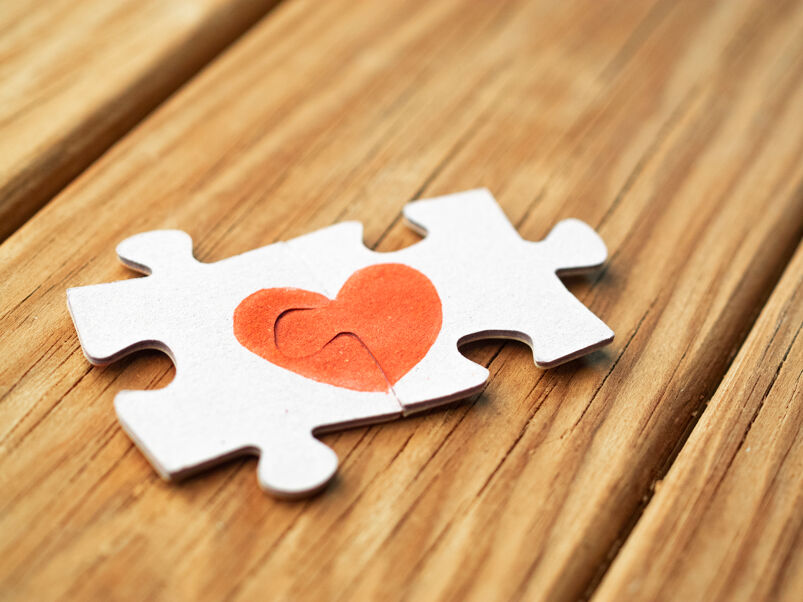
Dating can be all over the place. Some people just want casual situationships, others are looking for one night dalliances, and then there are those who are ready to get married nine days after they meet. Regardless of your preference, we all crave affection and want to be in partnerships that feel authentic and safe. As an autistic person, it’s taken me a while to be open to the idea of being in a relationship. If you have a potential partner on the autism spectrum, here are some tidbits to take into consideration…
Take the time to learn our interests.
One trait we autistic folks are known for is having “special interests.” In non-autistic terms, it just means our interests. When I’m passionate about something, I tend to infodump–gathering and sharing information about whatever it is I’m passionate about.
For autistic people, sharing our interests is just a way of connecting with others, especially if they have the same interests. For example, I love horror movies. Anything avant-garde to the Saw franchise. If I find out a guy I’m talking to also loves horror movies, I might use that as a way to build our relationship. We all love it when our potential partners are similar to us… although I would be open to a clone!
A common misconception that comes along with this, however, is that we autistic people are “selfish” or “self-centered” for talking so much about our “special interests” which, again, are just our interests and no more special than anyone else’s.
Just remember, it’s just us talking about what makes us happy. That said, being autistic doesn’t make it okay to only talk about our interests. If you feel like you aren’t being given the space to express your own passions and interests to your autistic partner, communicate that. We appreciate the feedback!
This brings me to my next point…
When dating an autistic person, don’t be afraid to keep it 100.
We aren’t mind readers (despite our godly abilities to pick up on social cues). You get back what you put out. Growing up, I felt like I had a good grasp at this with my friends, but that changed when I became an adult and I started dating. As I stepped into adulthood, I noticed all the ways others handled romantic situations. Or more specifically, exiting romantic situations.
Ghosting is easy because it only takes a few seconds to block someone, but it’s also rude. If you find yourself chatting with an autistic person and losing interest in them, just say so. I promise won’t hunt you down and wear your face as a mask. Personally, I would rather have someone tell me they aren’t interested so my time isn’t wasted and my feelings aren’t crushed. Plus, I’m mature and patient enough to find someone better.
Speaking of patience…
When it comes to opening up, give us a little more time.
Autistic people have to navigate living in a world not made for us. It’s difficult enough already without you getting frustrated with us for simply, well, being ourselves.
Another misconception about us is that we’re all introverts. We get slapped with the loner label solely because we might not always be the life of the party.
Although I can only speak for myself, I believe a big part of why we’re like this is because we feel like we have to be guarded. Non-autistic people have a history of treating us as inferior in virtually every aspect–life, work, dating, even partying–so sometimes it takes a little more time for us to let down our guard.
Over the years, I’ve gotten better at opening up to guys. But it hasn’t been the easiest. Many autistic people need partners to understand that we open up in our own time. If you’re willing to be patient with us, it can lead to stability, which can lead to long-lasting love.
In conclusion…
As an autistic person, I am deserving of love. Autistic people, in general, are not often portrayed in the media as potential love interests, and that’s a shame since we’re so great! I’m here to tell you that we can make great lovers/friends/partners/flings, and, just like many of you, we’re waiting for the universe to send us our Mr. Right.


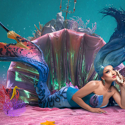

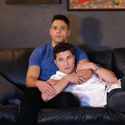



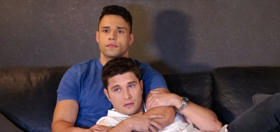








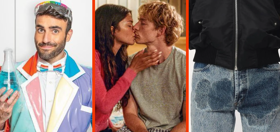


Fahd
I guess when you’re wondering why he thinks, behaves and perceives in ways which are different from the general population norms, saying “oh, he has autism” helps to accept and “understand” the differences. In that way, the label can be helpful.
Otherwise my experience is that each person with autism is unique, in the same way everyone is.
I’ve observed that people who have “high functioning autism” and can “pass” a lot of the time do in fact suffer an inordinate amount of rejection at times. Posts like this one help to improve understanding.
LumpyPillows
I’ve come to the conclusion that most people are somewhere on the spectrum. A Little more kindness goes a long way.
michel_banen
In short; treat the other person with respect which is likely what everybody would want, autistic or not.
I work with people that have autism and this article here is one of the few on Queerty that I can completely stand behind.
missvamp
i can agree with the majority of this, other than the picking up on social cues. most of us just can’t do that. that’s one of our biggest downfalls. i can’t tell if someone is flirting. i suck at flirting. i’m way too over the top or i’m too subtle. there is no middle ground with me, ever.
1898
i think he was being sarcastic/humorous when he wrote about “our godly abilities to pick up on social cues”
Mr.Gavin Elster
Some photos would have helped “illustrate” this otherwise informative article. I’d like to see a LOT more stories like this, rather than the non-stop “thirst traps,” recycled social media posts of “celebrities” on expensive vacations and overall “click-bait.”
BStewart27
I’ve rarely had any success with cruising because I just can’t tell in the moment if someone is interested. I have also lost several friends because they expected me to come on to them, and these were women who know I’m gay. There’s a lot of cruising at my YMCA, but it’s totally not safe for me with the police decoys also there.
Shoetoo
Gay & horny you may be. But autistic? No. Or rather you were probably given a diagnosis of ASD. Am i right? It equates to somewhere on the autistic spectrum. And boy does it squash enough under that umbrella. Unless given a diagnosis of Autism you really shouldn’t bandy the term about. You maybe Aspergers, again not Autism. Though Aspies have traits of. No Autie i know or have known in the 22 years since my own sons diagnosis at 2, have been able to put themselves & their needs across so well. Even the dating/shagging, go you! But its not typical of Auties. Except of course these days just like exams the goal posts have neen moved. So many more with the best grades ever. And so many more diagnosed with ASD. Even at 40?? And they never knew?? If they never knew & managed to navigate their life in this neurotypical world till that age then they ain’t autistic. My son has Autism. His autism does not severely affect him compared to many others. But he is vulnerable, easily lead, open to manipulation & abuse. He is a funny fascinating guy, but he can not go out on his own & depending on mood will look straight through people or be adorably chatty. And like I say he is not severely autistic. So when you put yourself out there as autistic you are watering down the diagnosis of others. And people will expect them to behave in a way they can not.
1898
with all due respect, and i mean that sincerely, having an autistic child does not make you an expert on autism. many of your statements about autism are based on outdated information that is no longer used by neuropsychologists / neuropsychiatrists to diagnose autistic clients. for example, asperger’s syndrome is no longer given as a diagnosis and is no longer listed in the DSM. that happened 10 years ago. today, there are autism levels 1, 2, and 3, based on the level of support the person needs in their daily living activities.
FreddieW
You didn’t define your autism, so this is useless information. If you can function socially, you aren’t like the few autistic people I’ve encountered. Is it just a label you’ve adopted?
1898
please educate yourself about autism — particularly the concept of “masking,” which is an ability that some autistic people have that allows them to “pass” as neurotypical in some situations. being able to mask doesn’t mean they’re neurotypical. masking also requires a significant amount of emotional and mental energy, and can be extremely draining.
FreddieW
Maybe there should be the equivalent of a Turing test for these labels. If people think you’re normal or maybe just a little odd, go with that perception rather than the designation of a disability. Life might be better.
1898
who appointed you as gatekeeper of other people’s diagnoses?
no one calls themselves autistic just for the fun of it. getting an autism diagnosis is difficult at best. one of my friends was on a waiting list for 18 months before she was finally able to get a neuropsych evaluation. the evaluation started at 9am and lasted until 3pm. her insurance didn’t cover it, so she had to pay $1600 out of pocket. no one goes through all that just for fun.
FreddieW
I’m not the gatekeeper of other people’s diagnoses, but if they can function in society like everyone else, why do I need to consider them differently? And more importantly, why do they need to think of themselves as having a disability? And why do they need to be diagnosed?
1898
people seek out a diagnosis when they are not functioning in society just like everyone else. understandably, they want to know why they’re having difficulty with things that come easily to most people.
1898
the book “Older Autistic Adults: In Their Own Words: The Lost Generation” by Dr. Wilma Wake is an excellent resource for anyone wanting to learn more about autism, especially so-called “high functioning” autism which often goes undiagnosed because the vast majority of doctors, teachers and psychologists aren’t trained to identify it
JJinAus
So many nasty people making judgements. I am (very) high functioning autistic. Despite my intelligence and social and fiscal advantages, life has not been easy socially. To this day, people loathe me almost instantly. I can’t pick up the social cues that are effortless for the majority. Result, almost no friends, but fortunate enough to be with somebody like me for 23 years and counting. Not complaining, but would like more friends who are easier to read.
bachy
The only celebrity I know who is married to an autistic man is Amy Schumer, and frankly, it doesn’t seem like a very happy marriage.
1898
if i was married to amy schumer i wouldnt be happy either